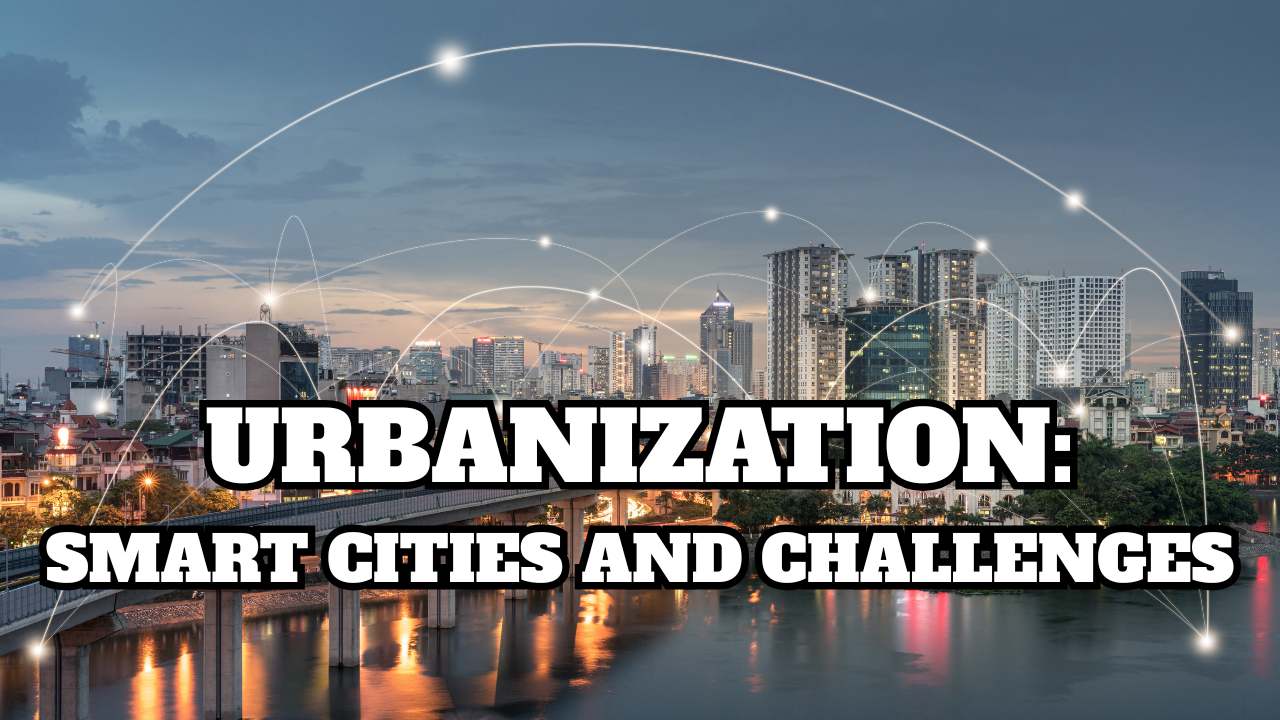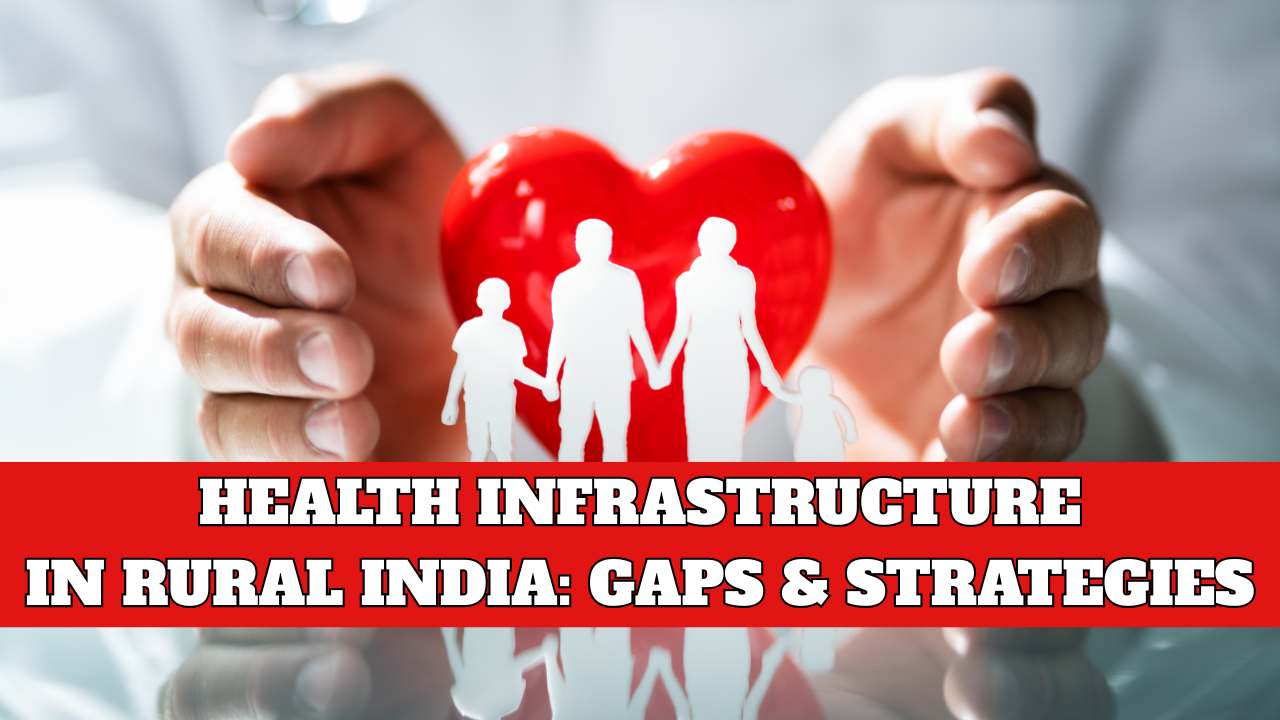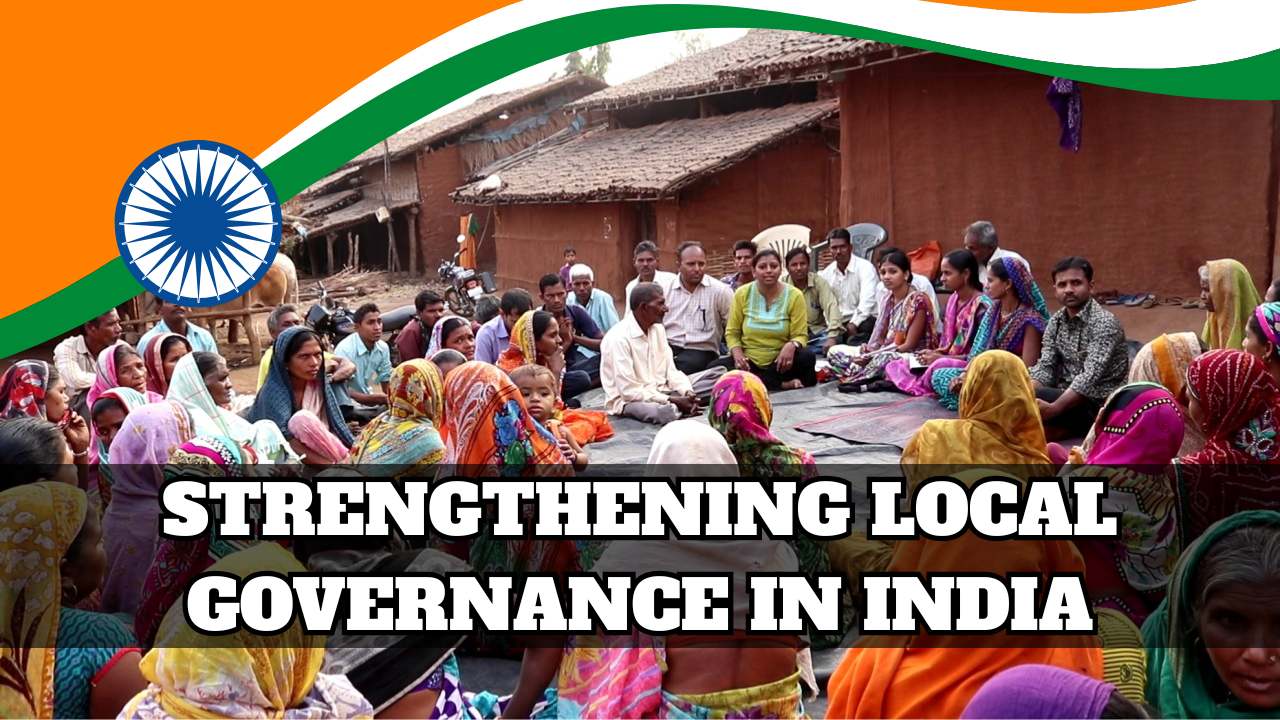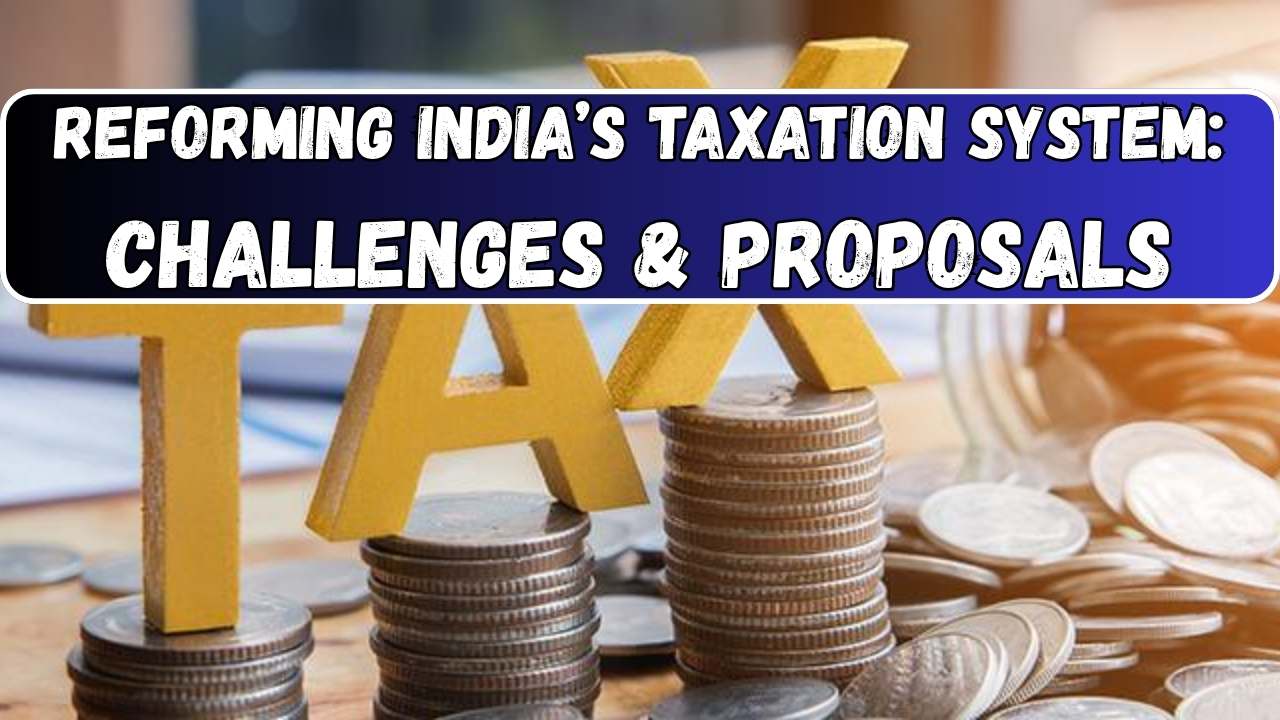Urbanization in India is growing at a rapid pace. People in India leave villages and small towns to find better jobs, education and healthcare services. This migration supports economic development but it also creates problems such as traffic, pollution, water shortages and waste management in cities. To solve these issues, the Indian Government had started the Smart Cities Mission in 2015. This mission is designed to transform cities into modern, technology driven and sustainable urban spaces. A smart city in India is not just about using technology but it is also about improving the daily lives of citizens.
Urbanization In India
Urbanization In India is both an opportunity and a challenge. Moving to cities brings jobs and growth but it also makes it hard for authorities to provide basic services to everyone. Smart cities try to fix this by using technology. The goal is to make life better for everyone but building these cities is not easy. It comes with challenges like high costs, limited access to technology or digital inequality. The vision of smart cities in India is not only about looking modern and using new technology but it is about creating cities that provide a better quality of life to all residents.
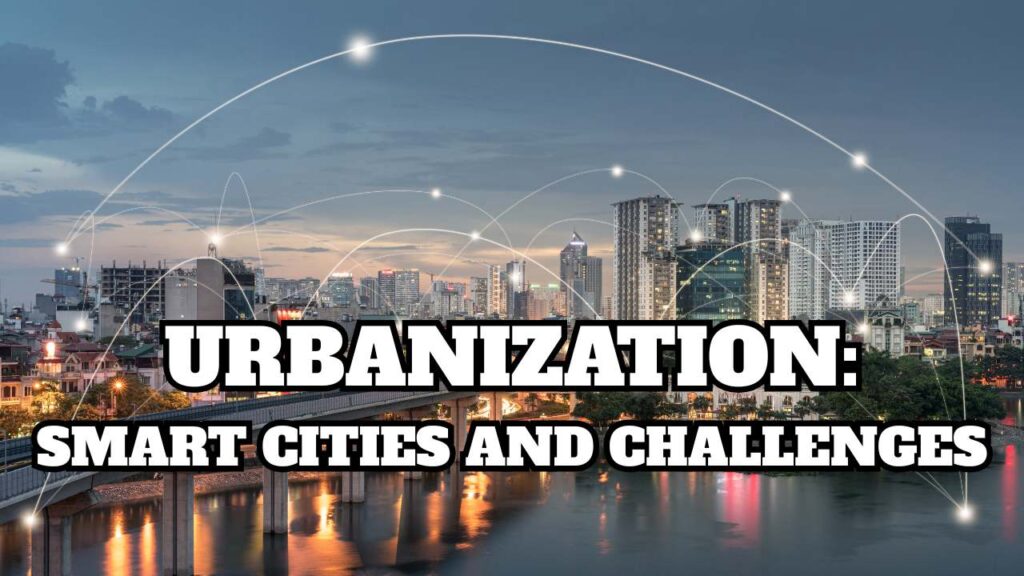
Smart Cities In India – Key Overview
| Post Title | Urbanization |
| Purpose | To make Indian cities sustainable, efficient and livable |
| Technologies Used | Internet of Things, AI, Cloud Computing |
| Benefits | Better traffic management, Improved public services, reduced pollution and more |
| Challenges | High cost, data privacy and others |
| Key Sectors Involved | Transport, energy, water, waste management, healthcare, education |
| Examples in India | Surat, Pune, Kochi, Jaipur |
| Category | News |
Smart Cities Features
A smart city combines infrastructure with advanced technology to improve living standards. The things that make cities smart and unique are:
- Smart Governance & Citizen Engagement: Use of e-governance platforms to provide online services like bill payments, certificates, complaint registration and more makes a smart city.
- Smart Infrastructure: Modern and well planned roads, housing, public spaces makes a city unique.
- Smart Technology & Mobility: GPS enables public transport for real time tracking, electric buses, metro systems and smart parking solutions help in making a smart city.
- Smart Security Systems: Installation of CCTV cameras, emergency response system and disaster warning tolls makes a city more unique and smart.
- Smart Energy & Environment: The city that uses solar, wind energy, smart grids are more efficient.
- Smart Water & Waste Management: Automated systems for water distribution and sewage treatment makes a city unique and technology driven.
- Smart Healthcare & Education: Digital health records can make healthcare more accessible. Schools and learning centers use online tools and digital lessons to make education more accessible.
Key Technologies Powering Smart Cities
Smart cities use advanced technologies that connect people and infrastructure and data. Let’s check these advanced technologies:
- Internet of Things: IoT connects sensors, devices and systems to collect real time data. For example: Smart Traffic lights can adjust timings based on vehicle flow.
- AI & Machine Learning: AI & ML analyze massive amounts of data collected from city systems. For Example: AI Based cameras can identify accidents or unusual activities. Then they can alert emergency services automatically.
- Cloud Computing: Smart cities need a central platform to store and process data securely and this can be helpful with Cloud computing.
- Others: Geographic Information systems and blockchain technology and smart mobility solutions also help in making cities smarter and unique.
Together these technologies create a connected environment where every component works as part of a large digital ecosystem.
Challenges In Building Smart Cities
The vision of Smart cities is exciting but turning this to reality involves various challenges. Some of Key Challenges includes:
- High costs
- Data Privacy and Security concerns
- Lack of skilled workforce
- Connectivity Gaps
- Governance
- Coordination issues
Future Outlook of Smart Cities in India
India has recently approved 12 new industrial smart cities under the National Industrial Corridor Development program. This program has a budget of Rs. 28,602 crore. Places such as Rajpura and Patiala in Punjab, Agra and Prayagraj in UP are being developed. These places are being developed to create employment, to attract businesses and to improve infrastructure.
FAQs Related To Urbanisation & Smart Cities In India
How will Smart Cities & Urbanization in India help ordinary people?
Smart cities in India will improve daily life of ordinary people via a cleaner environment, faster public transport, safer streets and via providing better access to basic services such as water, healthcare and electricity.
What technologies are used for Smart Cities Development?
For Smart Cities Development, technologies such as IoT, AI, Cloud Computing, GIS Mapping and more are used.
What are the biggest challenges in India for a smart city development?
Major challenges in India for a smart city development include high costs, need of skilled workers, data and privacy.
How many Smart Industrial Cities has India recently approved?
Recently, the Government has approved 12 new smart industrial cities across different Indian states.
